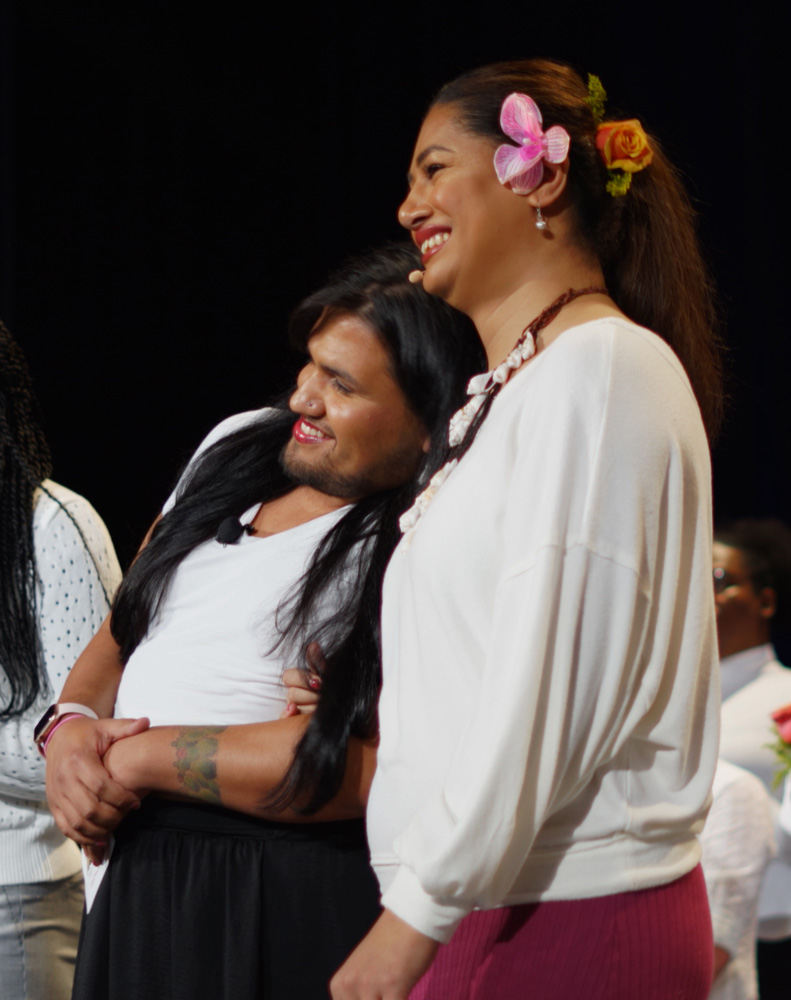Defining The Problem
To achieve transgender liberation we must love and value all people. Despite decades of resistance by disabled and chronically ill people, including deaf, neurodivergent, mad people, and people living with HIV, ableism is still so often rendered invisible within larger calls for justice. All bodies and minds have a place in this world. Every person has their wisdom to add to our journey toward liberation. Disabled people and those living with HIV experience some of the highest rates of poverty, discrimination, underemployment, housing insecurity, violence, and criminalization. And these numbers are often intensified for those who are also trans. The violence we face is not a consequence of our disabilities or deafness, our illness or our HIV status. Rather, our bodies and minds are deemed unworthy. Our lives are literally seen as invalid in a society driven by capitalism.
The services we need — that all people are entitled to by design — require that we remain in poverty in order to qualify. We are forced to depend on the state for these vital resources, submitting ourselves to broad state control and eroding our self-determination.
The oppression of ableism and the stigma of HIV has widespread consequences that impact disabled people and people living with HIV specifically, but ultimately are used to oppress all people, especially the poor and people in Black, Indigenous, and other people of color communities (BIPOC). Ableism shows up in laws that criminalize people living with HIV and disproportionately cage our community for simply living with a chronic illness. We feel the fear rooted in ableism when HIV-surveillance programs strip us of the right to medical privacy, making our confidential medical information a weapon against us in court or immigration proceedings. It can be seen in the nonconsensual surgeries on intersex infants as a way of enforcing the gender binary. The weight of it bears down when we are told that accommodations and basic access are impossible and costly, yet suddenly become achievable when needed by able-bodied or hearing people to support capitalism as we witness a rapid transition to virtual meetings during the pandemic. We are reminded of the violence of ableism when our mental health needs or the manifestations of our illness fill us with fear of institutionalization, rather than guarantees of care, autonomy and support from our community. We fear accessing care, testing, or medical support because far too many times we have been met with racism, transphobia, stigma, infantilization, or institutionalization. We feel it deeply when time and time again when disabled Black people are shot by police during wellness checks.
Ableism is at the core of transphobia — transgender people are often labeled “sick” “mad”, “ill”, or “freaks” for simply being trans. This is a deliberate use of ableism, well known for its success in determining who is worthy and who is disposable. We are told that to be “sick” “mad” or “ill” — terms many of us now use to empower ourselves — means that we are perceived as less than human. That we are to be feared and neglected, rather than respected and valued. Even as transgender identities and experiences become more mainstream, being disabled, deaf, and ill have not. To be trans and disabled means that our genders and sexualities are under greater scrutiny. We are infantilized, fetishized or both. All of the expansive and gorgeous parts that make us who we are are never welcomed together. More often the complexity of our lives and experiences are used to dilute our rights to agency, resulting in trans disabled people being relegated to where we always are — a life where we are repeatedly disposed of.
What’s more, ableism at its core both perpetuates and is fueled by white supremacy — the two oppressive forces intertwine to shape and define the concept of the “other” as being dangerous and disposable. White supremacy creates conditions in which white disabled people are pitied while Black disabled people are feared. We cannot address ableism honestly without also addressing the ways that white disabled, sick, deaf, and mad people benefit from white supremacy, even within the violence that ableism presents.
Defining The Strategy
The complexity of our traumas, histories, and current lived experiences in combination with unchecked ableism has resulted in social justice movements to write us off as not critical enough to include meaningfully. It is imperative that the trans liberation movement undo the oppressive burdens of ableism. The problems created by ableism do not originate from who we are as people and how our disabilities manifest. In fact, who we are is brilliant. We are resilient, creative, and generous. Our wisdom fortifies movements and strengthens communities. There can be no trans liberation without an end to ableism.
We must radically alter our vision for liberation so that our value does not depend on able-bodied notions of productivity. Our contributions must be recognized as important to all people’s liberation. Liberation feels urgent within our movements. And yet when we act with urgency, we inevitably make it impossible for many people who are disabled, mad, neurodivergent, sick and chronically ill to participate in enacting solutions. Ending ableism, as with transphobia and white supremacy, requires intention, complexity, and collective care.
Demands
Acknowledgments
We are deeply grateful to the many people who generously contributed to, reviewed, and offered on Defining Ourselves, including Sebastian Margaret, Cecilia Chung, Sophia Kass, Xoai Pham, Mickaela Bee, Ash Stephens, Shelby Chestnut, Kris Hayashi, and Emily Waters.

